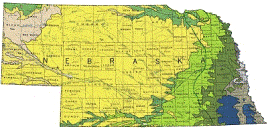United States Geological Survey

United States Geological Survey: Staff Publications
Document Type
Article
Date of this Version
2006
Abstract
A baseline and background chemical survey was conducted in southeastern California, USA, to identify potential sources of toxicants in natural and anthropogenically-altered habitats of the threatened desert tortoise (Gopherus agassizii). Soil, stream sediment, and plant samples were collected from six tortoise habitat study areas in the Mojave and Colorado deserts and analysed for up to 66 different elements. The chemical analyses provided new information on the abundances and distributions of selected elements in this region. Soil, stream-sediment, and plant analyses showed distinct variations in bulk chemistries from locality to locality. Variations were, in general, consistent with the many types of exposed rock units in the region, their highly variable bulk mineralogies, and chemical contents. Of elements in soils that might have been toxic to tortoises, only As seemed to be anomalous region-wide. Some soil and plant anomalies were clearly anthropogenic. In the Rand and Atolia mining districts, soil anomalies for As, Au, Cd, Hg, Sb, and(or)Wand plant anomalies for As, Sb, and(or) W extend as far as ~15km outward from the present area of mining; soils containing anomalous Hg were found at least 6km away from old piles of tailings. The anomalous concentrations of As and Hg may have been the source of elevated levels of these elements found in ill tortoises from the region. In the Goldstone mining district, soil anomalies extended several km from the mining area. These areas probably represented anthropogenic surface contamination of dust redistributed by wind, vehicles, and rainfall. One of two study areas transected by a paved road (Chemehuevi Valley) showed weakly elevated levels of Pb, which extended as far as ~22m from the pavement edge and were probably related to vehicle exhaust. No soil or plant samples from historically used military areas (Goldstone, Goffs, Chemehuevi Valley, Chuckwalla Bench) contained anomalous concentrations of the elements As, Cu, Cr, Fe, Pb, or Zn that could be ascribed to military maneuvers, vehicles, or ordnance. For future studies, the distribution and abundance of elements in the tortoise forage plants need to be evaluated for the respective roles of dust and systemic uptake. Additional chemical data from tortoise necropsies and nutritional studies are needed to determine the effects of potentially toxic elements in tortoise habitats on their health.


Comments
Published in Journal of Arid Environments 67 (2006) 35–87